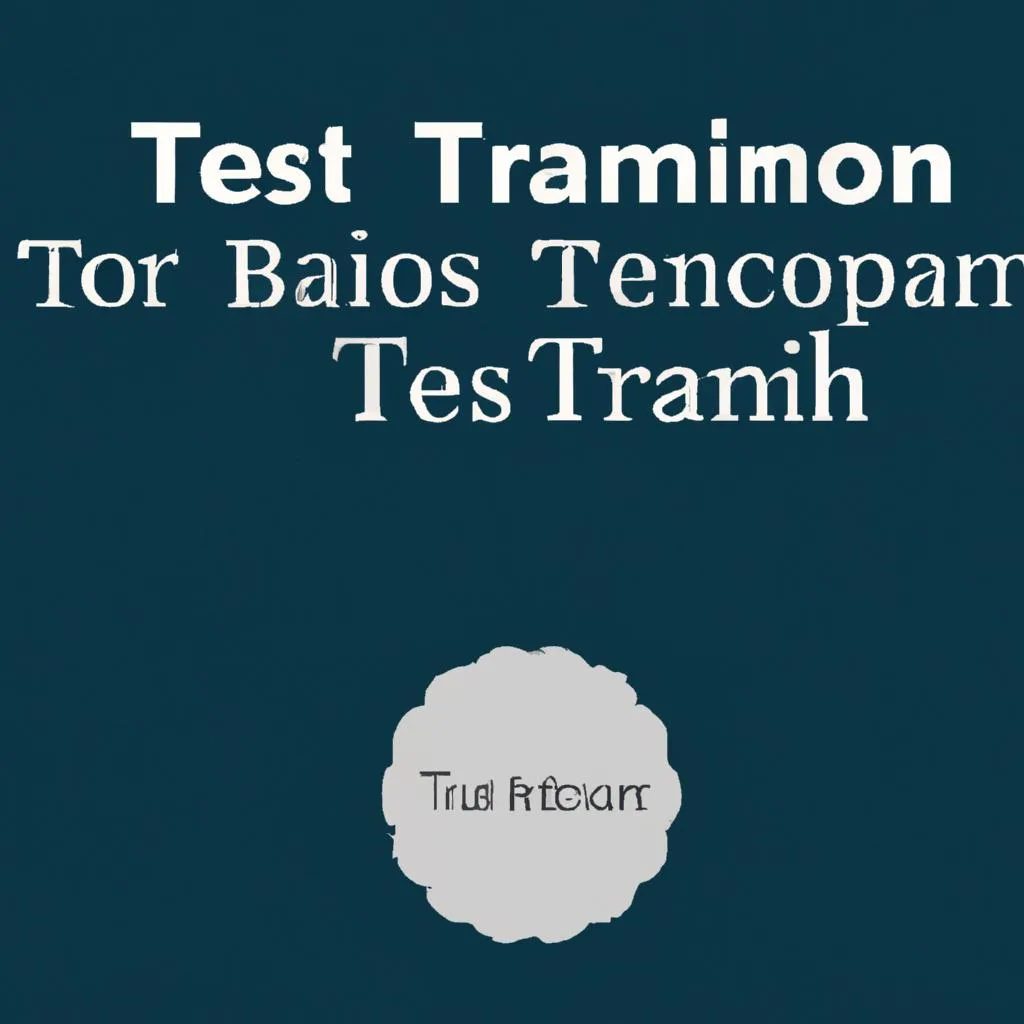When considering the establishment of a trust, one of the most important decisions to be made is who will be responsible for managing it. This role requires an individual with the necessary skills and knowledge to handle complex legal and financial matters, as well as a deep understanding of fiduciary responsibilities. At Morgan Legal Group, we specialize in estate planning and trust administration and can help guide clients towards the most suitable candidate to manage their trust effectively and efficiently.
Key considerations when selecting a trustee for a trust
Selecting a trustee for a trust involves several crucial considerations to ensure the successful administration of the trust and the protection of the beneficiaries’ interests. The trustee plays a critical role in managing trust assets, making distributions, and carrying out the terms of the trust document. Therefore, it is essential to choose an individual who is reliable, trustworthy, and possesses the necessary expertise to fulfill their fiduciary duties.
Some key factors to consider when selecting a trustee include their financial acumen, integrity, communication skills, availability, and willingness to serve. It is also crucial to choose a trustee who understands the grantor’s wishes and values, as well as the needs and circumstances of the beneficiaries. Additionally, it is essential to consider any potential conflicts of interest that the trustee may have and whether they are capable of making impartial decisions in the best interests of the trust.
The importance of choosing a trustworthy and financially responsible individual
The decision to appoint someone to manage a trust requires careful consideration. It is crucial to choose an individual who possesses a high level of integrity, trustworthiness, and financial responsibility to ensure the trust is managed efficiently and ethically.
A trustworthy and financially responsible trustee will act prudently and diligently in the best interests of the beneficiaries. They will also possess the necessary knowledge and skills to navigate complex financial matters, make informed investment decisions, and adhere to legal and ethical standards.
Who is the Best Person to Manage a Trust?
A trust is a legally binding agreement in which one party, known as the trustee, holds assets for the benefit of another party, known as the beneficiary. Trusts can be used for various purposes, such as estate planning, wealth protection, and charitable giving. However, choosing the right person to manage a trust is crucial for its successful execution. The person who is responsible for managing the trust should have the required skills, expertise, and integrity to handle the assets and fulfill the terms of the trust. In this article, we will discuss who the best person is to manage a trust and why.
Types of Trustees
Before diving into who is the best person to manage a trust, it’s essential to understand the different types of trustees. A trustee can be an individual, a group of individuals known as co-trustees, or a corporate trustee, such as a bank or a trust company. Each type of trustee has its own set of pros and cons, which we will explore further.
Individual Trustee
An individual trustee can be a family member, a close friend, or a trusted advisor. They are typically chosen for their knowledge of the trust beneficiaries and their ability to make decisions in their best interest. However, individual trustees may lack the necessary expertise and could be emotionally attached to the trust beneficiaries, leading to biased decision-making. They may also be prone to making mistakes, which could result in legal and financial consequences.
Co-trustees
Co-trustees are two or more individuals who manage a trust together. This type of trustee arrangement allows for the division of responsibilities, mitigating the risks associated with an individual trustee. For instance, one co-trustee may handle investment decisions, while the other handles administrative matters. However, conflicts may arise between co-trustees who have different ideas or disagree on decisions, hindering the smooth management of the trust.
Corporate Trustee
A corporate trustee is a professional and unbiased entity that specializes in managing trusts. They typically have years of experience and the necessary expertise to handle complex trust structures and investments. Corporate trustees also have a fiduciary duty to act in the best interest of the trust beneficiaries, minimizing conflicts of interest. However, hiring a corporate trustee can be expensive, and they may have a one-size-fits-all approach, which may not align with the specific needs of the trust.
Qualities of the Best Person to Manage a Trust
Now that we have discussed the types of trustees let’s look at the qualities that make someone the best person to manage a trust.
1. Trustworthiness
The most crucial quality of a trust manager is trustworthiness. They should be honest, dependable, and act with integrity in all their dealings. A trust manager should put the interests of the trust beneficiaries first and avoid conflicts of interest. They should also be transparent and keep detailed records of all the trust’s activities, providing regular reports to the beneficiaries.
2. Financial Expertise
Managing a trust involves making sound financial decisions, such as investments, taxes, and budgeting. Therefore, the best person to manage a trust should have a good understanding of financial and investment concepts. This can include a background in finance, accounting, or law. They should also keep up-to-date with tax and legal regulations to ensure the trust is compliant and avoid any legal consequences.
3. Organizational Skills
A trust manager must be detail-oriented and have excellent organizational skills. They should be able to keep track of important deadlines, documents, and contracts related to the trust. They should also be able to manage the trust’s assets efficiently, such as maintaining records, paying bills, and making necessary payments to beneficiaries.
4. Communication Skills
The best person to manage a trust should have strong communication skills, as they will need to communicate with the trust beneficiaries, co-trustees, attorneys, and other professionals involved in the trust’s management. They should also be able to communicate complex financial and legal concepts in a clear and concise manner to the beneficiaries.
5. Availability
As a trust manager, the person should be available to handle any urgent matters related to the trust. They should be easily reachable and able to respond quickly to any questions or concerns the beneficiaries may have. This includes being available to attend meetings and make critical decisions when necessary.
6. Objectivity
A trust manager should be objective when it comes to making decisions related to the trust. They should put aside their personal relationships and emotions and make decisions that are in the best interest of the trust beneficiaries. Objectivity also helps to mitigate conflicts and ensure that the trust’s goals are met efficiently.
Conclusion
In conclusion, the best person to manage a trust is someone who possesses the qualities of trustworthiness, financial expertise, organizational skills, communication skills, availability, and objectivity. While there are pros and cons to each type of trustee, it’s essential to choose someone who is suitable for the specific needs and goals of the trust. The management of a trust is a crucial role, and it’s essential to select someone who can handle it with the utmost care, responsibility, and professionalism. It’s always advisable to seek professional advice when selecting a trust manager to ensure the trust’s long-term success and the fulfillment of its objectives.




